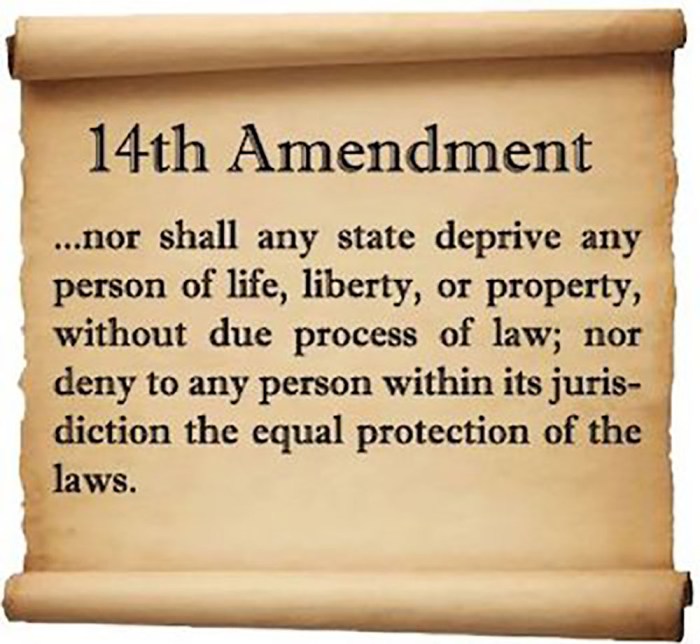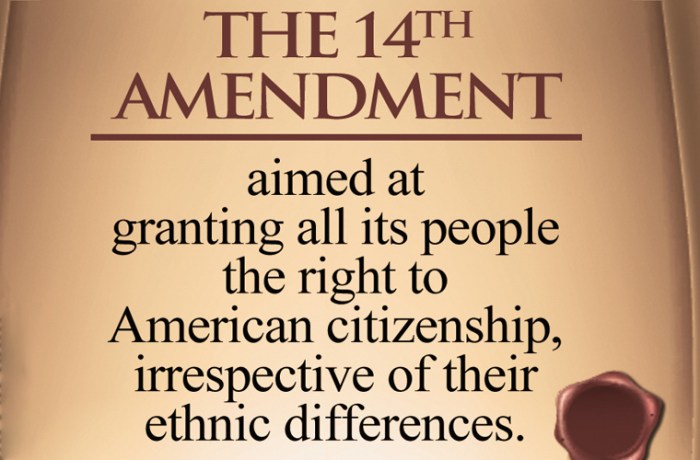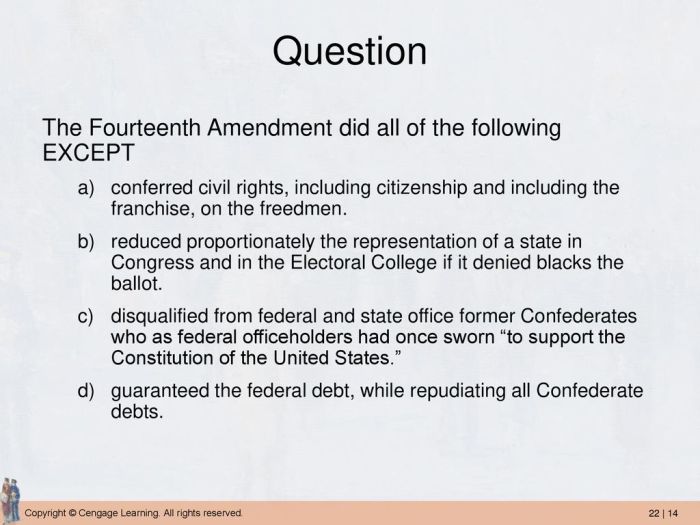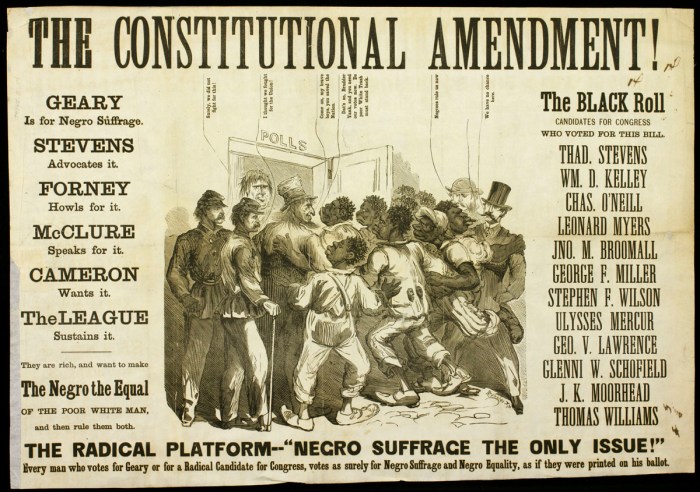The fourteenth amendment did all of the following except – The Fourteenth Amendment to the United States Constitution, adopted in 1868, has had a profound impact on American society. It has expanded the rights and protections of citizens, shaped legal and social policies, and sparked numerous controversies and debates.
This amendment guarantees equal protection under the law, due process of law, and citizenship to all persons born or naturalized in the United States. It has played a pivotal role in the advancement of civil rights, voting rights, and the protection of individual liberties.
Historical Context

The Fourteenth Amendment to the United States Constitution was adopted in 1868 as part of the Reconstruction Amendments following the Civil War. It was designed to guarantee equal protection under the law for all citizens and to address the legacy of slavery and discrimination.
Purpose and Significance, The fourteenth amendment did all of the following except
The Fourteenth Amendment’s primary purpose was to overturn the Supreme Court’s decision in Dred Scott v. Sandford(1857), which had denied citizenship to African Americans. The amendment established that all persons born or naturalized in the United States are citizens, regardless of race or previous condition of servitude.
FAQs: The Fourteenth Amendment Did All Of The Following Except
What is the purpose of the Fourteenth Amendment?
The Fourteenth Amendment was adopted to guarantee equal protection under the law, due process of law, and citizenship to all persons born or naturalized in the United States.
What are the key provisions of the Fourteenth Amendment?
The key provisions of the Fourteenth Amendment include the Equal Protection Clause, the Due Process Clause, and the Citizenship Clause.
How has the Fourteenth Amendment impacted American society?
The Fourteenth Amendment has had a profound impact on American society, shaping legal and social policies and advancing civil rights and individual liberties.


